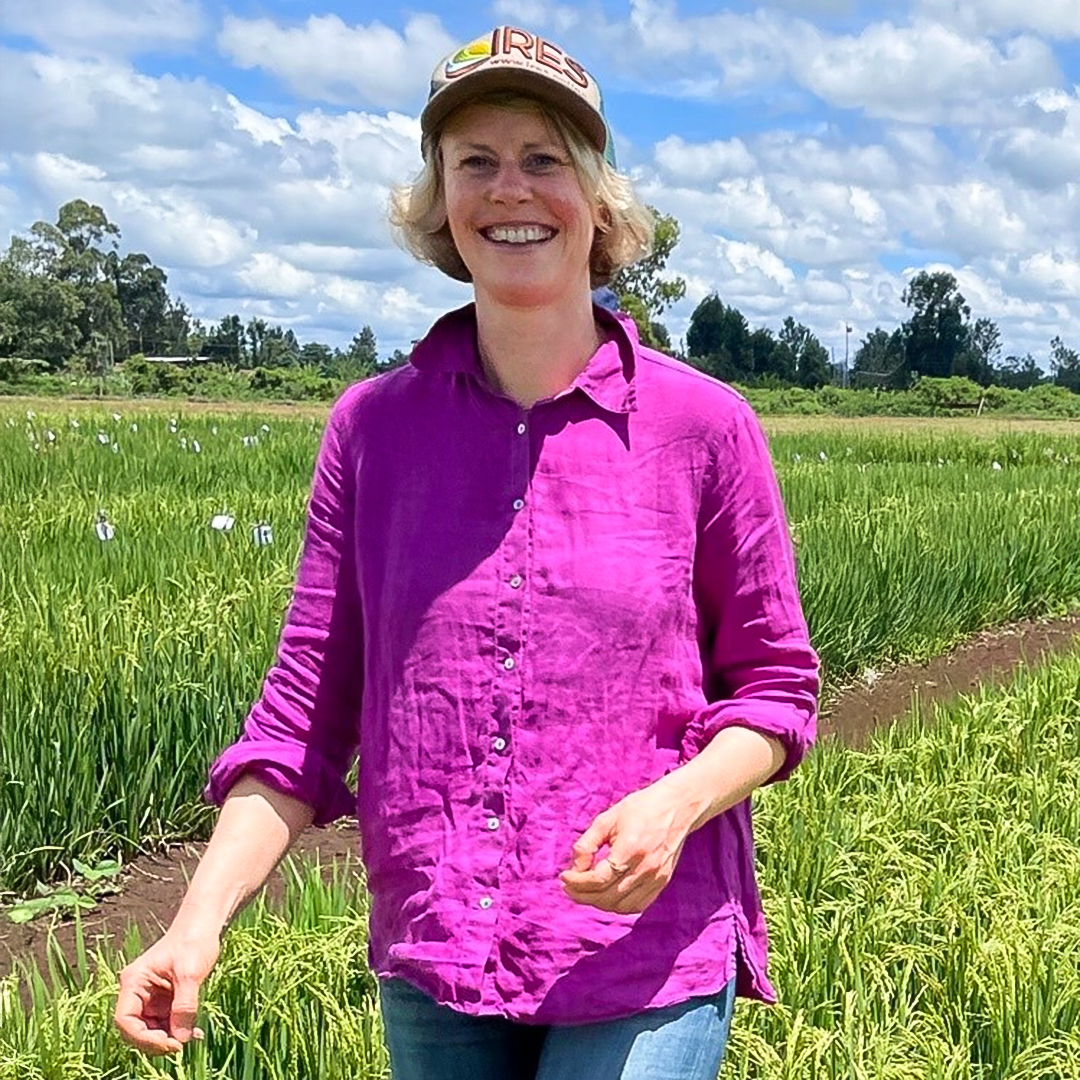
Hello
from
I’m Sarah Schmidt and I work as an advisor for the GIZ Fund for International Agricultural Research (FIA). What’s our goal? We want to improve agricultural and food systems around the globe – making them more sustainable, more environmentally friendly and more socially equitable. It’s about ensuring we have enough food for everyone worldwide, so we can make hunger a thing of the past.
My road to becoming a GIZ advisor began with my degree in biology and chemistry, followed by a Ph.D. in genetics. I specialised in plant disease. During my Ph.D. I worked with crops like barley, tomatoes, melons and bananas. Even at that stage I wanted to do more than conduct research work in a lab. I wanted to use my work to drive development. This interest took me to Indonesia on a research trip. It was a trip that changed my life. I created a blog to share my findings, and that brought me a scholarship for a research project in England.
After Brexit I decided to return to Germany, where I worked on disease-resistant rice varieties for the Bill & Melinda Gates Foundation. In 2020 I moved to GIZ. Initially I was amazed by the sheer scope of GIZ’s work in international cooperation. Our actions have an important political dimension. We network research centres at international level, support them in a wider context, and coordinate various donors.
Specifically I’m working on four major topics: we support research in fields like adaptation to climate change, biodiversity and gender equality. We develop professional expertise by sending experts to research centres around the world, where they help organise the work of the centres more efficiently as well as sharing the results of their work effectively. Communication is the third focus. We demonstrate how important agricultural research is, and why it affects all of us. Finally, we advise BMZ on selecting the issues that make a difference as well as ensuring that research really has an impact.
Alongside my work at GIZ I also seek ways to explain the correlation between species diversity and food systems in a way people can easily understand. In my book ‘Ohne Mücken keine Schokolade’ (No chocolate without mosquitoes) I look at plants, from apples to cocoa and oranges, at how we humans have changed them and at how they in turn have changed us. What we eat is closely linked to knowledge, but also to trade, industrialisation, colonialism and the loss of genetic diversity. Did you know that one potato disease triggered the single largest migration movement in human history? Or that there are more than 2,000 varieties of bananas, but that worldwide only one is exported? That is risky and not sustainable.
The results of research clearly demonstrate that it is time to improve the world through smart agricultural research. I’m happy to be able to do my bit.
Best regards,
Sarah Schmidt
February 2025